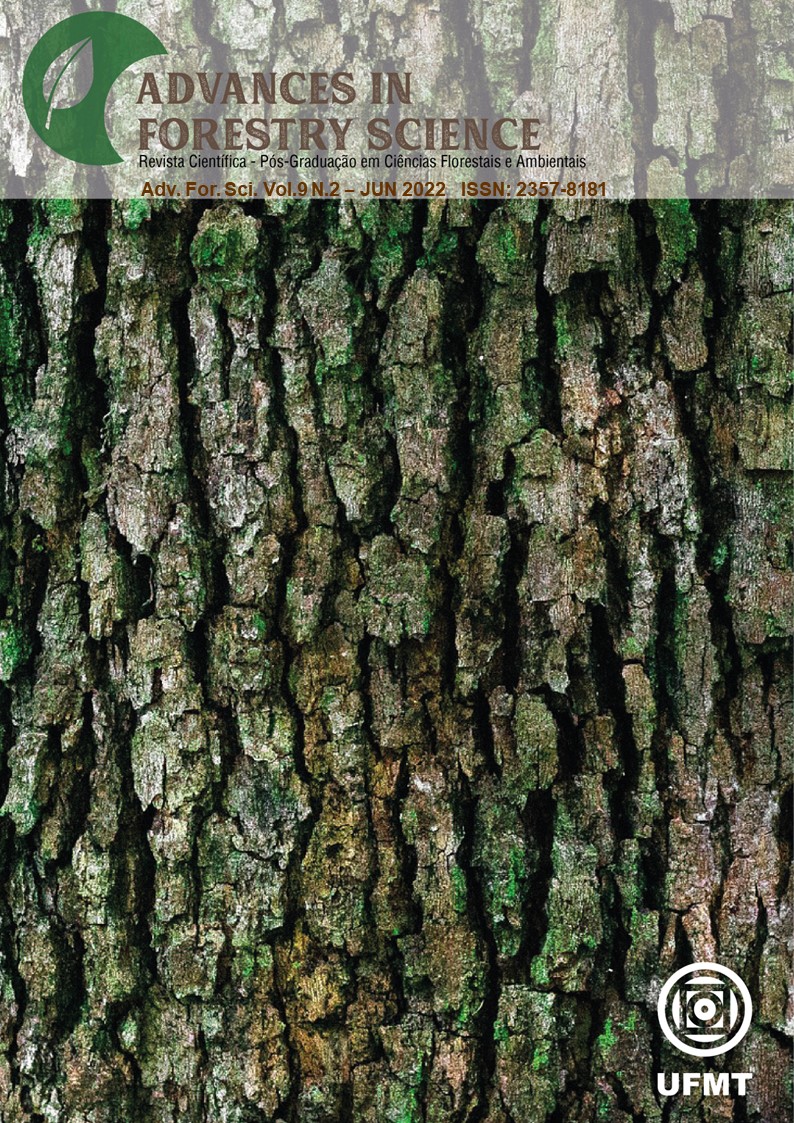Quality and efficiency of tannin and additives in the preservation of Pinus taeda wood against decay
DOI:
https://doi.org/10.34062/afs.v9i2.13255Abstract
Pinus wood is widely used in Brazil, for various finality, however it has low natural durability, so it needs a preservative treatment, when the intention is to use it in adverse conditions. Thus, the present study aimed to evaluate the quality and efficiency of tannin and additives in the preservation of Pinus taeda wood against deteriorating agents in a decay test. For this, wood samples were subjected to preservative treatment by immersion, with tannin, tannin+boron and tannin+copper. Concentrations of 5% of tannin and 1% of additives (boron or copper) were applied. The quality parameters (penetration and retention) and efficiency (mass loss and deterioration index) of the treatments were determined. In the efficiency evaluation, the wood was exposed to field testing, in an open environment, in direct contact with the soil, with evaluations every 45 days, up to a total of 315 days. All treatments showed full penetration in the external cross-section, and partial peripheral penetration in the internal cross-section. For retention, the tannin and tannin+boron treatments showed averages of 7.47 and 7.42 kg/m³, respectively, while the tannin+copper treatment obtained a result of 10.99 kg/m³. Regarding efficiency, the control had the greatest loss of mass at the end of the evaluations, followed by the woods treated with tannin, tannin+boron and tannin+copper. The tannin+copper treatment showed the best results in all evaluations, indicating that copper is the most recommended additive to be used together with tannin.
Downloads
Downloads
Published
Issue
Section
License
All copyright must be assigned to the Federal University of Mato Grosso.

